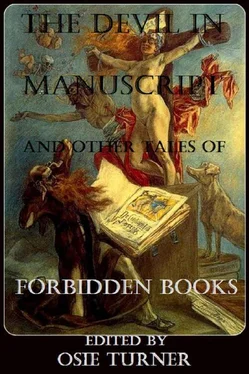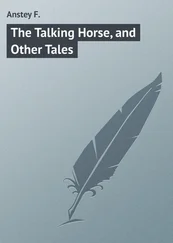My first thought was that the young poet had gone mad. There he stood, coatless, collarless, hatless—a pair of pink worsted slippers adorning his flat feet, his flannel shirt open at his bony throat—waving the book about his head as though it were a tomahawk. No doubt Paul would think that such an apparition was quite a customary sight in Washington Square. I glanced at him and saw that his lips were twitching in their attempt to restrain a smile.
“You’re not much of a prophet, Smithers,” Farrington continued excitedly. “I told you there were more ways than one of finding recognition.”
I haven’t the slightest idea what you’re driving at, Rupert,” I said reprovingly. “Your words and your gestures convey nothing to my mind. If you will kindly refrain from dashing my brains out with that crimson tome, I’ll introduce you to my brother.”
“Oh, I beg your pardon!” Farrington muttered, evidently seeing Paul for the first time. “Glad to meet you, I’m sure. This book got me so worked up that I’m not quite myself.”
“I’m very pleased to meet you,” Paul murmured in the tone of a man saying: “Oh, don’t mind me! I know this is bohemia—so be just as wild as you want.”
“Now sit down, Rupert,” I continued, “and explain what you mean. You say that you win. What do you win? You say that I am a poor prophet. When did I ever prophesy to you?”
Farrington seated himself and smiled triumphantly. “I win a hundred dollars from you,” said he. “And I win it, because you made a false prophecy about Burgess Martin.”
Paul and I started and interchanged glances. We had just agreed to drop the man’s name from our conversation.; yet here it was, popping up again with the obstinacy of a cork submerged for an instant under water! Evidently we could not so easily dismiss him from our intercourse as we had imagined.
“What has Burgess Martin to do with it?” I asked sharply.
“Everything,” Farrington replied. “His book, ‘Many Murders,’ is being brought out by the Brainsworth Publishing Company next week. I have an advance copy which Williamson of the Evening Star loaned me. I believe you made a little bet, Smithers, that Martin wouldn’t get any more of his work into print. I brought this book along as proof.”
As he finished, he handed me the volume bound in red morocco. I had a feeling of extreme irritation as I examined it—an irritation which did not spring solely from the fact that I had just lost a bet. Any allusion to Martin was like the lash of a whip falling on my sensitive self-pride.
“So he has succeeded in having his work published at last,” I muttered.
“And I feel that it will be a classic!” Paul cried enthusiastically.
“Don’t be too sure of that,” I replied. “It’s more likely to be highly sensational melodrama. ‘Many Murders!’ Why, the thing bears the hallmark of the dime novel!”
Farrington flushed angrily. “You’re wrong, Smithers,” said he. “The Brainsworth Publishing Company doesn’t bring out dime novels.”
“But I presume you’ll acknowledge that even the Brainsworth Publishing Company can make mistakes. We’ll see what the critics have to say about it.”
Farrington burst out into a laugh. “That’s like yon, Smithers. You’d never acknowledge anything was good till a band of learned asses told you so. Have you ever heard of Sir Vivian Gerard?”
“The famous London critic? Of course! Who hasn’t?”
“Well, the Brainsworth Publishing Company sent the manuscript of ‘Many Murders’ to him for his opinion. He wrote a glowing review of it which they are now using for advertising purposes. Here’s a selection from it which they enclosed with each review copy.”
Farrington fumbled in his pocket and drew out a small wrinkled sheet of printed matter. Adjusting his spectacles on his bony nose, he began to read the review. It ran as follows:
A MASTER OF HORROR.
“It gives me great pleasure to introduce to the world an undoubted master of the horror tale. Not since the days of Poe has America produced such a consummate craftsman. I do not hesitate to say that even the immortal creator of ‘The Gold Bug’ had not the power of description which makes Burgess Martin’s work unforgettable.
“‘Many Murders’—Mr. Martin’s first book—is a masterpiece of the terrible. Simple, direct, quite free from any attempt to mystify the reader, each one of these weird sketches stands out like a finely carved cameo. While reading them, one thrills to a sensation of the actual. It is almost as though the reader were an eyewitness of those scenes which have flowed so vividly from their creator’s fertile imagination. Morbid they may be; but, for all that, they deserve a lasting place in modern fiction.
“What have you got to say to that, Charley?” Paul cried.
“Not a thing,” I answered a trifle shamefacedly. “When Sir Vivian Gerard makes such a statement, it is not for me to contradict. Have you read the book, Rupert?”
“Yes,” said Farrington enthusiastically. “I read it last night and I couldn’t get to sleep till morning. There’s one sketch in it which I think is even better than ‘The Murder of Mary Mortimer.’”
“What’s that?” Paul asked. “He calls it ‘In a Blind Alley.’ It’s the last sketch in the book.”
“What’s the theme?” I inquired with a sudden suspicion of the truth.
“It hasn’t a plot or any conventional theme,” Farrington replied rather contemptuously. “The narrator sees a man beaten to death by a band of thugs. There’s a kind of bitter irony running through it. The victim pleads with the narrator to help him over the high brick wall which terminates the street—his pursuers are right on his heels, you understand—but the narrator is a conventional fool who, because the victim wears rags, thinks that he must be a crook trying to escape from the police. He refuses to help; a crowd of thugs dash up; and it’s all over with the poor devil. By the way, Smithers, that chap who wouldn’t help the other reminds me of you.”
“Thanks,” I murmured with a wildly beating heart. “Perhaps I would have acted so under the same circumstances. But I don’t see anything remarkable about that story.”
“It isn’t the theme!” cried Farrington impatiently. “It’s the way it’s treated. Why, you can see the whole thing;—the obstinate stone wall partly illumined by an antique lantern; the poor, cowering wretch, on his hands and knees, begging for mercy; and then the mob, with their cudgels, approaching like a many-headed monster. But the death of the man in the green coat! How vivid that is! You can see him squirming beneath a forest of clubs, you can hear the dull thudding blows! And when it’s all over, when the many-headed monster crawls back into its lair, you have a vivid impression of the scene—the body crumpled up against the wall, the moon peering down with her enigmatic smile, and the conventional fool striding off before the police come, to avoid unpleasant notoriety.”
“And what happened to Martin?” I cried out incautiously. “Didn’t he sneak away, too?”
“Martin?” said Paul. “Why, what do you mean, Charley? This is only a story!”
“To be sure,” I said with a forced laugh. “Rupert told it so vividly that it made me forget. Lead me the book, will you?”
“Certainly, Smithers,” Farrington answered, eyeing me curiously. “I’ll be very glad to have you read it. At last you seem to be interested in Martin. You’d better read it tonight while you’re in the right mood.”
I acted on his suggestion. After he and Paul had gone, I took up “Many Murders” and turned to the last story. There it was, my adventure in the alley, so vivid, so remorseless, that it was as though I were living once again those terrible moments. And as I read on, great drops of sweat gathered on my forehead—gathered there and trickled down into my smarting eyes. Martin had indeed succeeded in painting a picture with words.
Читать дальше












